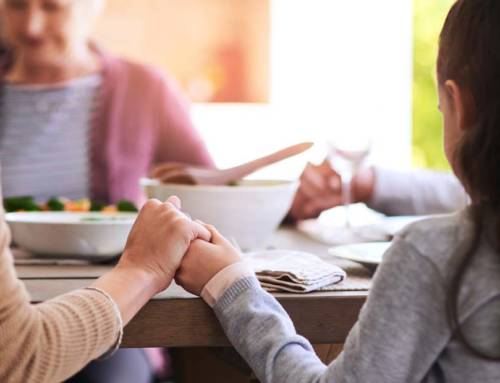The holidays can be difficult after a loss. Grief can be triggered by memories related to a favorite song, a handmade ornament, a family custom or an empty chair at the table. In addition to the regular stress of the holiday season, some may feel anxious about trying to manage their grief while celebrating the holidays.
Since the holidays can trigger grief, it’s important to understand how to identify your needs as an individual and as a family. Your first holidays following your loss gives you an opportunity to create new traditions that honor your loved one while helping you grieve as a family.
“During the holidays, you have to give yourself permission to not celebrate or celebrate differently,” Heidi M. Young, Hospice bereavement coordinator, said. “Be aware of self-care and the boundaries for what you’re able to do during the holidays. There is no right or wrong way to grieve, just like there’s no right or wrong way to celebrate the holidays.”
Below are some tips for getting through the holiday season as a family:
- Lower your expectations of the holidays.
The holidays will look different without your loved one. It’s okay to change how you celebrate (such as adding a new tradition to honor your loved one). You can, however, keep meaningful traditions like baking cookies or displaying favorite decorations. - Create a new tradition in memory of your loved one.
Consider making a memorial ornament, playing special music or donating to a charity in memory of your loved one. Plan ahead and communicate in advance with the people you will spend the holidays with to make sure everyone is supportive.“One new tradition could be saying a special prayer about your loved one before the holiday dinner,” Heidi said. “Make your favorite meal and dessert and eat as a family while sharing stories about your loved one.”
- Acknowledge your loss and discuss your loved one around the table.
Share your memories, what lessons you learned from your loved one and what you’re grateful for from that person. This can create a setting for meaningful conversations. It may also help the younger people in your family learn things about their loved ones they never knew. In addition, it can encourage other family members to share their feelings among a supportive group. “Be open and honest with yourself and your family,” Heidi said. “This is a difficult time for everyone. It is important to create a safe and honest place to share in your grief.” - Make some quiet time for yourself.
The holidays can be hectic, so make quiet time for yourself. Ask others to help with cooking, shopping or decorating. Time to yourself will provide you with energy to devote to your grief needs. - Enjoy yourself and encourage your family to enjoy themselves.
The grief journey will be tough, but there will also be love and joy. Encourage your family that it’s okay to “just be happy,” especially during the holidays. This doesn’t diminish how much you love and miss the person who isn’t there, but it gives you permission to celebrate.
“Children learn through our own behavior,” Heidi said. “They learn how to grieve. They should be able to grieve open and honestly. It’s OK for them to be sad and angry. If we give them the language and understanding, they know it’s OK [to express their feelings], too.”
There are many books and resources, including from Masonic Village Hospice (links listed below), about death and dying and how to speak with children about grief.
Every grief journey is unique for each individual and so are our holidays, Heidi said. “Whichever way you choose to celebrate the holidays is the way you are supposed to celebrate,” she said. “Just do your best to find a positive balance for what you can emotionally, physically and spiritually handle.”




